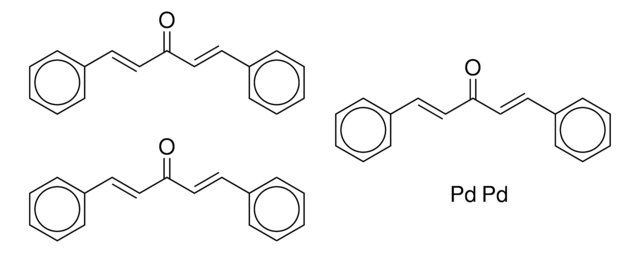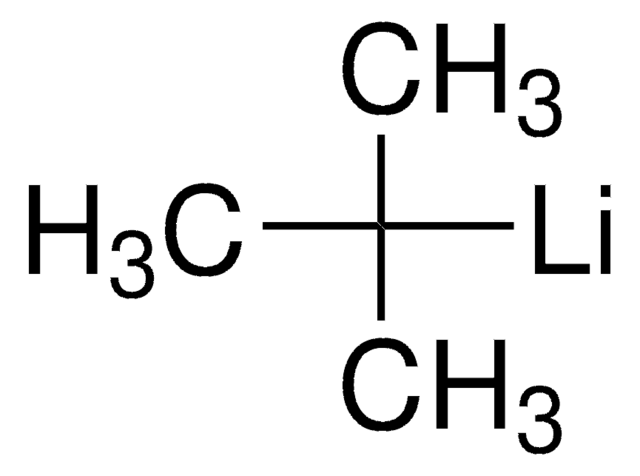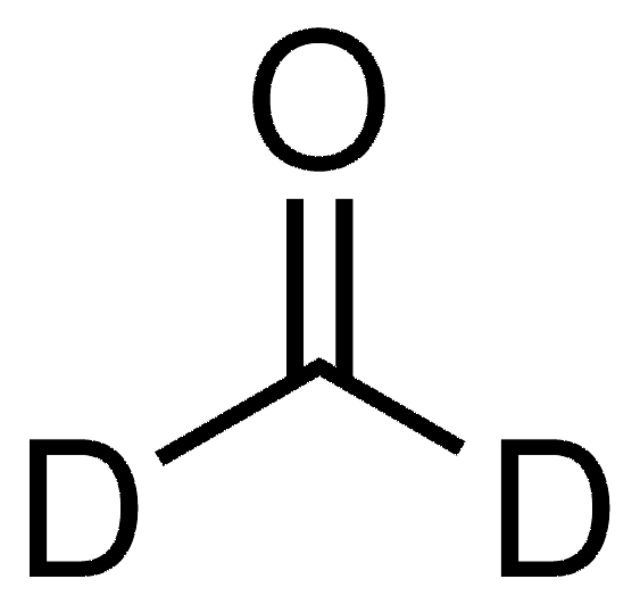202207
Boron tribromide
ReagentPlus®, 99.9%
Synonym(s):
Tribromoboron
Sign Into View Organizational & Contract Pricing
All Photos(1)
About This Item
Empirical Formula (Hill Notation):
BBr3
CAS Number:
Molecular Weight:
250.52
EC Number:
MDL number:
UNSPSC Code:
12352101
PubChem Substance ID:
NACRES:
NA.22
Recommended Products
vapor density
8.6 (vs air)
vapor pressure
40 mmHg ( 14 °C)
product line
ReagentPlus®
Assay
99.9%
color
colorless
bp
~90 °C (lit.)
mp
−46 °C (lit.)
density
2.60 g/mL at 20 °C (lit.)
SMILES string
BrB(Br)Br
InChI
1S/BBr3/c2-1(3)4
InChI key
ILAHWRKJUDSMFH-UHFFFAOYSA-N
Looking for similar products? Visit Product Comparison Guide
Application
Reactant for preparation of:
- Drug intermediate 6-nitro-L-DOPA
- Luminescent polystyrene derivatives with sterically protected carbazolylborane moieties
- High-quality boron-doped graphene via Wurtz-type reductive coupling reaction
- Mercapto-(+)-methamphetamine haptens for synthesis of (+)-methamphetamine conjugate vaccines with improved epitope densities
- Micrometer-sized organic molecule-DNA hybrid structures
- Borane complexes via electrophilic aromatic borylation reactions
- A 5-HT2C receptor agonist
- Biphenyl-derivatives possessing tertiary amino groups as β-secretase(BACE1) inhibitors for the treatment of Alzheimer′s disease
- A highly near-IR region fluorescent p-extended boron aza-dipyrromethene moiety unit
- Tetrahydroisoquinoline derivatives via intramolecular cyclization of methoxy-substituted N-phenethylimides
Used to cleave aryl methyl ethers in a syntheses of a benzopyranobenzopyran from a coumarin scaffold and ladder-type conjugated polymers.
Legal Information
ReagentPlus is a registered trademark of Merck KGaA, Darmstadt, Germany
accessory
Product No.
Description
Pricing
Signal Word
Danger
Hazard Statements
Precautionary Statements
Hazard Classifications
Acute Tox. 2 Inhalation - Acute Tox. 2 Oral - Eye Dam. 1 - Skin Corr. 1A
Storage Class Code
6.1A - Combustible acute toxic Cat. 1 and 2 / very toxic hazardous materials
WGK
WGK 3
Personal Protective Equipment
dust mask type N95 (US), Eyeshields, Gloves
Choose from one of the most recent versions:
Already Own This Product?
Find documentation for the products that you have recently purchased in the Document Library.
Customers Also Viewed
Tetrahedron Letters, 47, 8689-8689 (2006)
Pengpeng Lu et al.
Carbohydrate polymers, 216, 149-156 (2019-05-03)
A novel porous β-cyclodextrin/pillar[5]arene copolymer was prepared using tetrafluoroterephthalonitrile as cross-linker for rapid removal of variety of organic pollutants. The copolymer was characterized by water contact angle, scanning electron microscope, FT-IR spectrum, solid-state 13C NMR spectrum, thermo-gravimetric analysis, nitrogen adsorption-desorption
Xiu-Yan Dong et al.
Molecules (Basel, Switzerland), 23(5) (2018-04-26)
A novel heterotrinuclear complex [Cu₂(L)Na(µ-NO₃)]∙CH₃OH∙CHCl₃ derived from a symmetric bis(salamo)-type tetraoxime H₄L having a naphthalenediol unit, was prepared and structurally characterized via means of elemental analyses, UV-Vis, FT-IR, fluorescent spectra and single-crystal X-ray diffraction. The heterobimetallic Cu(II)⁻Na(I) complex was acquired
Lu-Mei Pu et al.
Molecules (Basel, Switzerland), 23(4) (2018-04-05)
[Co₂(L)Ce(OAc)₃(CH₃CH₂OH)]·1.5CH₃OH∙0.5CH₂Cl₂, a heterotrinuclear Co(II)-Ce(III) bis(salamo)-type complex with a symmetric bi(salamo)-type ligand H₄L and an acyclic naphthalenediol moiety, was designed, synthesized and characterized by elemental analyses, FT-IR, UV-Vis and fluorescence spectroscopy and X-ray crystallography. The X-ray crystallographic investigation revealed the heterotrinuclear
Jing Hao et al.
Materials (Basel, Switzerland), 11(4) (2018-03-30)
A novel, simple, highly selective, and sensitive fluorescence chemosensor for detecting Cd2+ that was constructed from a bis(salamo)-type compound (H₄L) with two N₂O₂ chelating moieties as ionophore was successfully developed. Sensor H₄L could show fluorescence turn-on response rapidly and significant
Our team of scientists has experience in all areas of research including Life Science, Material Science, Chemical Synthesis, Chromatography, Analytical and many others.
Contact Technical Service










